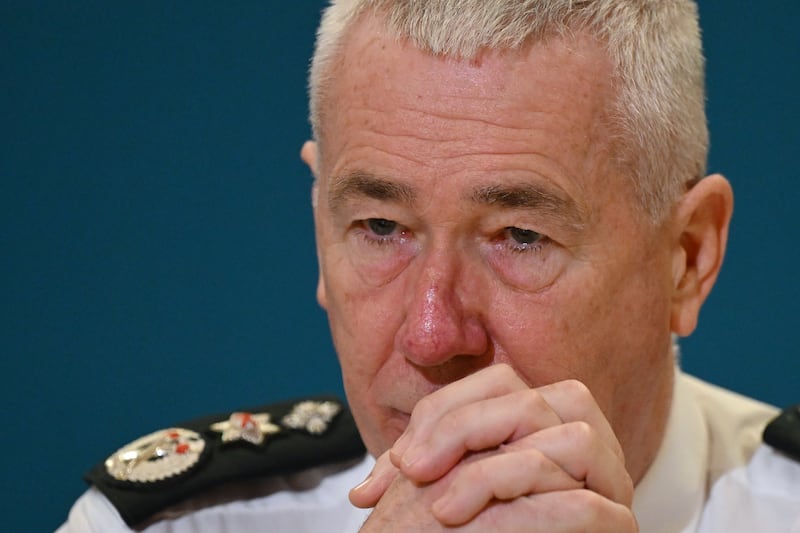A young graphic art student, Jorgis Xha, works in a bunker in Tirana. The former bomb shelter was built in the basement floor of a block of apartments, but has since been turned into a bar popular with tourists.
“It used to be an actual bunker. It was built when the building was made ... That’s what the dictator most feared; he feared the country would be bombed,” says Xha.
The dictator in question is Enver Hoxha, the communist leader who ruled Albania from the mid-1940s until his death in 1985.
Initially allied to the Soviet Union before cutting those ties, Hoxha turned the small Balkan state into one of the world’s most closed-off societies. His paranoia about an invasion saw the construction of tens of thousands of bunkers across the country.
READ MORE
The vast majority of the Cold War-era shelters have since been destroyed. The few that remain have been turned into bars, restaurants or museums telling the story of repression under the Hoxha regime, as the modern day state has pivoted to tourism.

Albania has been doing everything it can to open itself up to the rest of Europe and the wider world, with some success. The number of visitors in a given year has more than tripled, up from 3.6 million in 2014 to 11.7 million last year, according to figures from the department of tourism. The Adriatic coast destination has emerged as a cheaper alternative to popular spots such as Greece and Croatia.
Edi Rama, Albania’s colourful prime minister known for his dark humour, has invested a lot of effort into steering the country towards the fold of the European Union. This week he was re-elected for a record fourth term.
The Socialist Party leader decisively beat an opposition coalition fronted by the 80-year-old conservative politician Sali Berisha.
Post-communist states aren’t known for liking their elected leaders to stay in office too long, but Rama has bucked that trend.

He campaigned as the man who can shepherd Albania into the EU, in part – independent election observers say – by using the resources of the state to tip the scales in his favour.
Gjergji Vurmo, an expert on Balkans policy, says Rama’s widely predicted victory was down to the weak alternative put forward by the main opposition, the Democratic Party.
Its leader, Berisha, was elected president in 1992, and was prime minister from 2005 to 2013. More recently he has been dogged by corruption allegations.
On the campaign trail he tried to mirror the rhetoric and playbook used by US president Donald Trump to unseat Rama, but the message fell flat.
People did not turn out to vote for someone they believed “should have left the scene years ago,” says Vurmo. “These elections were not won by Rama because the elections were stolen, but because the opposition failed to inspire.”
However, pro-democracy campaigners say the prime minister has overseen a capture of the levers of state power by his party. There were allegations during the election of public sector employees feeling pressure to vote for the governing party.
The result means the Socialist Party will be able to rule “unbothered” for a further four years, says Daniel Prroni, a researcher at the Tirana-based Institute for Democracy and Mediation.
“What lies behind the facade in Albania is massive corruption, attacks on the media, attacks on the judiciary and inefficient and ineffective public administration, and organised crime,” he told a panel talk organised by the European Policy Centre think tank.
Rama, a former artist, has worked hard to cultivate Albania’s image as a modern state that will soon be ready to enter the EU. However, many say corruption is still endemic in the country, from petty bribes paid to grease the wheels of its public services, to high-level cases involving senior political figures. Earlier this year the mayor of Tirana, Erion Veliaj, was arrested on corruption charges, which he contests.
A relatively new anti-corruption agency, Spak, is so far seen as being genuinely independent and not afraid to go after politically sensitive cases.
“The EU has started to look at Albania more favourably in recent years,” says Andi Hoxhaj, a law lecturer at King’s College London who specialises in Albanian politics.
Corruption “was seen as a major issue in the judiciary but also other areas of public administration,” he says. That has started to change, he adds.
There is a sense Albanian officials are serious about internal reforms that need to be undertaken. The government has turned to artificial intelligence to translate thousands of pages of EU laws, known as the “acquis”, into Albanian, so its national legislation can be aligned.
It does not carry the same baggage as some of its neighbours from the break-up of Yugoslavia. The scars from the vicious ethnic conflicts that followed are still very much felt in other parts of the western Balkans.
The journeys of Serbia and Kosovo towards EU membership remain blocked because of the deterioration in their relations. North Macedonia is way back in the EU queue due to separate disputes with Bulgaria and Greece, who as member states can veto any step forward.
“The EU is in bad need of a success story,” says Hoxhaj. Montenegro and Albania are seen as front-runners; both could realistically be ready to join by the end of the decade if all 27 member states agree to let them in.
Rama has also positioned himself as someone European leaders can do business with, particularly when it comes to migration.

He signed a controversial deal with Italy’s hard right prime minister Giorgia Meloni, allowing facilities to be set up in Albania, where Italy could detain several thousand asylum seekers rescued at sea while their claims were processed.
The Albanian leader is “willing to consider whatever will bring him international points,” Prroni, of the Institute for Democracy and Mediation, says.
“It seems his motto is always to build alliances rather than create tensions. The thing that we fail to scrutinise sometimes is under what conditions these alliances are built.”
The prime minister’s political legacy is now tied to his country’s bid for EU accession. Several blue European flags were dotted among the red Albanian ones at an election victory rally on Skanderbeg Square in the centre of Tirana.
Xha, the young student working in the bunker-turned-bar, says young people find it difficult to care about politics, or the prospect of joining the EU.
“I would say people here mostly view money as the most important thing, not passion or your dreams ... The quickest way to make a lot of money, that’s what people care about here.”
Speaking at a press conference on Thursday, Rama described his country’s journey to join the EU as a “love story” that for too long had been unrequited.
Albania had been “serenading” the EU from outside, but for years the union had kept its bedroom window shut, he said. “Now the window is open ... As lovers, we will need to climb up.”




















